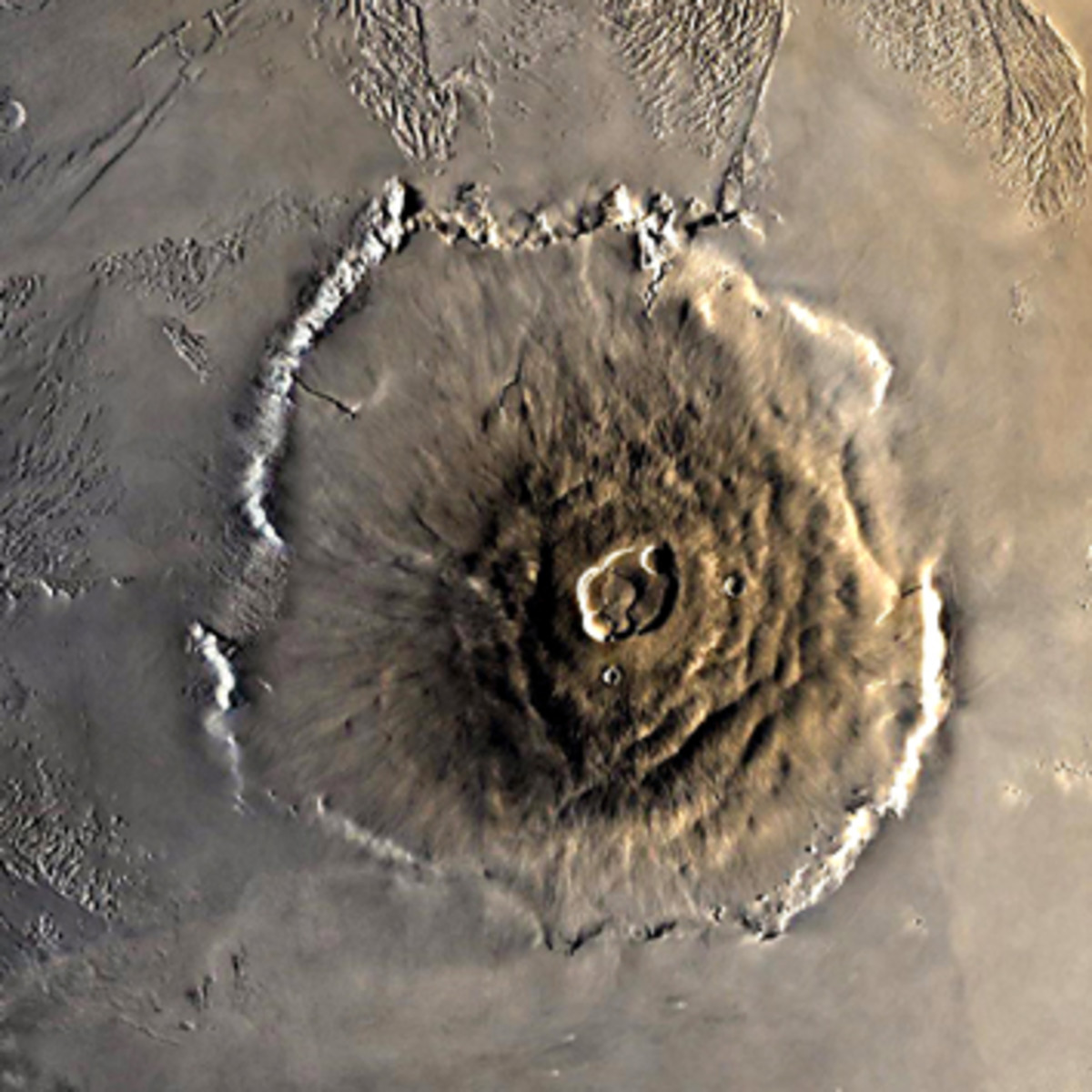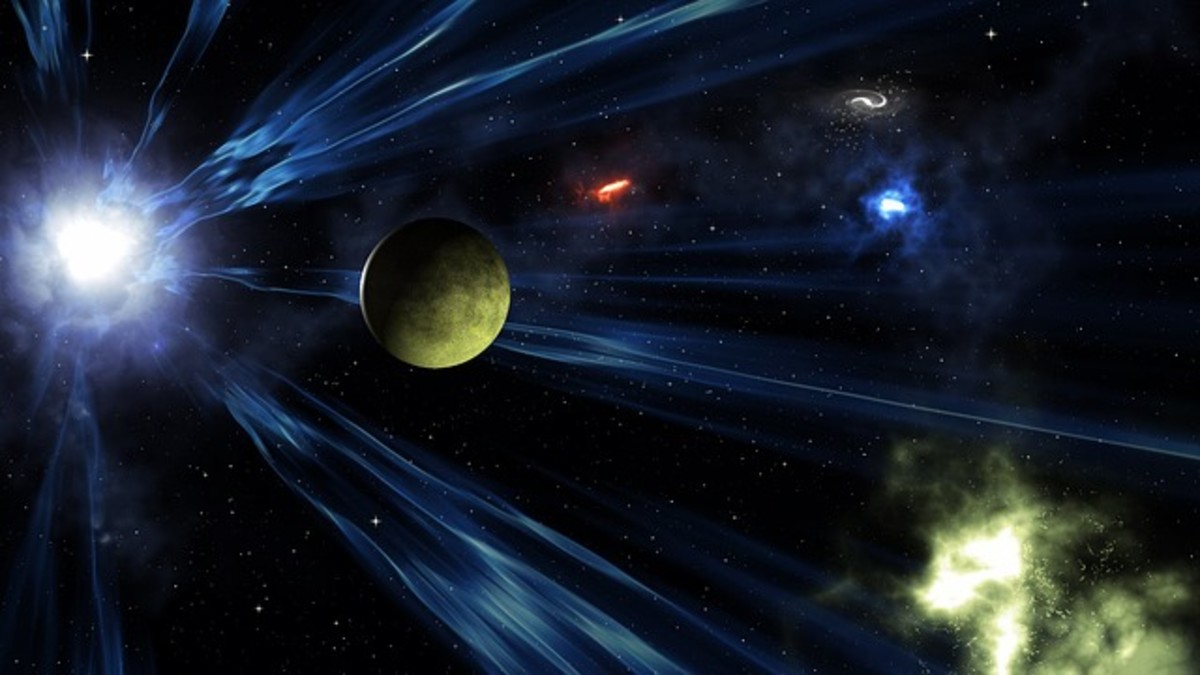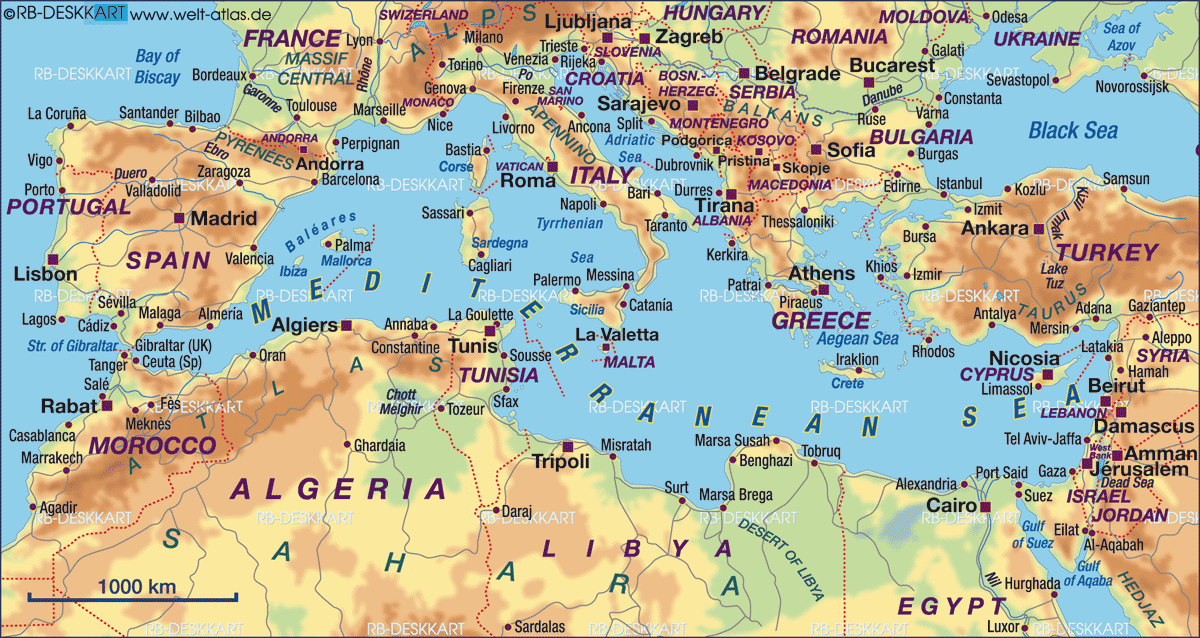Europa: Moon of Jupiter
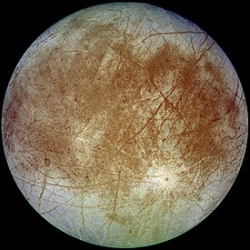
The moon Europa
Europa (the 6th closest moon to the planet Jupiter) is most certainly one the most fascinating bodies in our solar system. There are many reasons for this, but the most intriguing of which is that it may be the one place we know of, other than earth, that is capable of supporting life.
Due to observations of Europa made by space probes, scientists have found that its outer layer is composed of mostly of ice and it has one of the smoothest surfaces of any celestial body in our solar system. Due to the fact that this moon should be covered with craters and isn't, this smoothness suggests that below Europa's icy surface there may be oceans that could have two times the volume of water of that found in the oceans on earth. This fascinates scientists because studies on earth have shown numerous times that where ever there is water, there also appears to be life of some kind.
With the assistance of future explorations of this magnificent moon, we may finally find that life is not quite as rare as it seems. Because if other life exists within our own solar system (just one of billions of solar systems, in one of billions of galaxies) then the probability of it regularly occurring all over our universe will become extremely high. And we will finally know for certain that we are not alone.

Where Europa Got Its Name
Who is Europa...
Europa and other Galilean satellites are named after male and female lovers of Zeus, the Greek counterpart to the Roman god of the sky and thunder, (you guessed it) Jupiter.
In Greek mythology, Zeus (Jupiter, in Roman mythology) was enamored with Europa and decided to seduce her by transforming himself into a tame white bull that was mixed in with Europa's fathers herds. Europa spotted the bull while gathering flowers, caressed its flanks and eventually climbed onto its back. It was at this point that Zeus ran to the sea and began to swim to the island of Crete, taking Europa with him. After revealing his true identity to her, Europa became the first queen of Crete.
Zeus later re-created the shape of this bull in the stars, forming what is now known as the constellation of Taurus.

Why Europa Matters
A few reasons why Europa is so important...
- Out of all the planets and moons in our solar system, Europa is so far the most promising candidate which may be currently supporting extraterrestrial life in its under-ice oceans. If life were discovered here (no matter how small or seemingly insignificant it may be) it will show that the emergence of life in our universe may not be a rare occurrence.
- Unlike the frequently talked about past life and water on Mars, this possible life on Europa would not be a billion-year ago occurrence, but something that is actually occurring this very day.
- In September 2009, planetary scientist Richard Greenberg calculated that cosmic rays impacting on Europa's surface convert some water ice into free oxygen which could then be absorbed into the ocean below as water wells up to fill cracks. Via this process, it is estimated that Europa's ocean could eventually achieve an oxygen concentration greater than that of Earth's oceans within just a few million years. This could mean that Europa would be capable of supporting not merely microbial life but larger organisms such as fish.
- Europa's geophysical features, including a possible subglacial water ocean, make it a strong possibility that human life could someday target the moon for human colonization on or beneath the surface in the distant future.
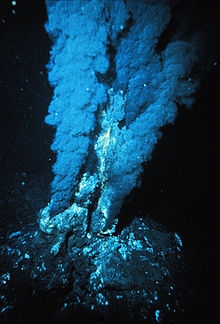
What Makes Life Possible on Europa
How life is possible on a planet covered in ice
Thanks to observations made by space probes, we've found out that Europa is a moon completely covered by ice. But ice itself is hardly a habitable place for life to thrive. One of the things which pique the interest of scientists is that Europa's surface is smooth when it should be covered in craters like its sister moons. This lack of craters may mean that the ice which covers Europa may be weak water ice with an ocean below that, when meteorites and other bodies make impact with, they may break through and sink into. The water beneath the broken ice would then re-freeze without leaving any significant trace of the craters which hit it.
The question then is how can liquid water remain to be liquid in such a cold area without much sunlight. The answer to this is that heat energy may be generating from tidal flexing of the moon as it orbits Jupiter. What this means is that when Europa orbits the large planet of Jupiter, it literally stretches out toward Jupiter (due to the large planets strong gravity) and then bends back to its normal state when its further away from the planet. This constant flexing causes the planet to heat up similar to the way a paperclip will heat up if you keep bending it, and this heat coming from Europa has the potential to keep its underwater oceans from freezing, possibly allowing life to emerge.
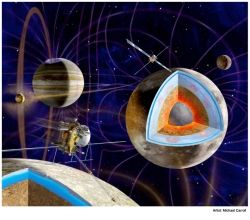
Future Explorations of Europa
Our plans for future explorations of this intriguing moon...
So far, most of the knowledge gathered about Europa is due to a series of flyby's which began in the early 1970s, with the sister crafts Pioneer 10 and Pioneer 11, and the observations made by the spacecraft Galileo which was launched in 1995.
While many proposals and plans to explore Europa for water and life have been made, most have been cancelled due to budget cuts and other changes in priorities (see: Jovian Europa Orbiter, Europa Orbiter, and Jupiter Icy Moons Orbiter). Fortunately though, with the announcement of the Jupiter Europa Orbiter (a proposed orbiter probe designed to look for evidence of Europa's subsurface ocean), slated (so far) for liftoff in 2020 with the Europa Jupiter System Mission (EJSM), we may finally get a good look at what this moon of Jupiter is really all about.
Click HERE For a Video Briefly Explaining What the EJSM Mission Entails
Videos on the Importance and Beauty of Europa
Arthur C. Clarke's Odyssey Series | Explore Europa and other planetary bodies in science-fiction
"All these worlds are yours except Europa. Attempt no landing there..." -- 2010: Odyssey Two
Sir Arthur C. Clarke is the author, inventor, and science popularizer who brought us some of the most riveting and groundbreaking science-fiction classics ever made. The most famous of which came from a collaboration between him and director Stanley Kubrick, called 2001: A Space Odyssey.
2001 wasn't where the odyssey ended though. Over the course of 30 years, Clarke has made three other novels which continued the tale; and in all three of these sequels, Jupiter's moon of Europa plays an exciting and fundamental role that greatly influenced my own interests in this moon and its siblings.
These novels remain faithful to science while acting as sparks to the imagination to science-fiction readers both old and young who dare to dream of a future that one day may come.

![Europa Report [Blu-ray]](https://m.media-amazon.com/images/I/51NXM8UMdVL._SL160_.jpg)


